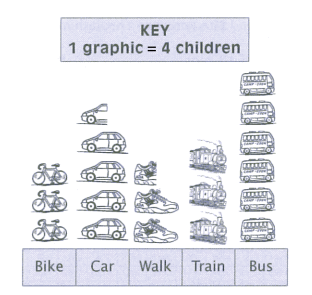7.01 Statistical questions
Identifying statistical questions
Governments, businesses and researchers gather statistics so they can draw conclusions and make decisions about specific issues. So if we're using statistics to make these important decisions, it's important to make sure that we're really investigating that issue.
That's why it's important to make sure we ask the right questions when we are collecting data. We need specific research questions that will give us specific answers to the questions we are investigating.
We also need to understand what graphs and statistical information are trying to tell us so we can draw conclusions based on information that is presented to us.
A statistical question must do all of the following:
- have a variety of possible answers: there has to be more than one answer to a question
- state a population: it must apply to more than one person
- need some statistical methods to answer the question
Practice questions
QUESTION 1
Which three of the following are statistical questions?
How much do puppies weigh?
AHave you ever visited Tokyo, Japan?
BHow old are Olympic gold medal winners when they win their medal?
CWhat is the wage of people in California?
DWhat superpower would you want to have?
EDo you prefer chocolate or popcorn?
F
Question 2
Is the following a statistical question?
Is your mom taller than your dad?
Yes
ANo
BWhy is the above question not a statistical question?
There is a lack of variability in the possible answers.
AIt doesn't state a population.
BYou do not need to use any statistical method to find out the answer.
C
Question 3
The motor authority wants to design a new advertising campaign targeting speeding among young drivers. To help make an effective ad, they want to ask a sample of young drivers to answer some questions in a survey.
Which of the following questions should they include in the survey if they want to minimize biased responses?
Do you think there is such thing as 'safe speeding'?
AHow old are you?
BDo you pay attention to speed signs?
CWhat is a safe speed?
D
Identifying statistical attributes
An attribute is defined as a specific characteristic or feature of a given subject. When we talk about statistical attributes, we mean the specific topic or subject that we want to investigate. If we can clearly identify the statistical attributes in a research project, it helps us generate clear research questions so we can make useful conclusions.
Let's practice identifying statistical attributes.
Practice questions
Question 4
What statistical attributes would need to be considered if you were trying to investigate how many pets your classmates own?
The number of pets they own
AHow much their pets weigh.
BThe type of pets they own
C
QUESTION 5
What statistical attributes could be being shown in the graph to the right?

Number of children who travel to school and their mode of transport
AHow many people prefer each mode of transport
BNumber of teachers who travel to school and their mode of transport
C
QUESTION 6
What statistical attribute is being compared in the bar graph?
Preferred sport
AThe number of hours of sport played
BNumber of boys
C